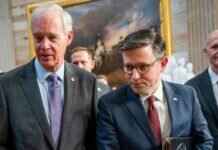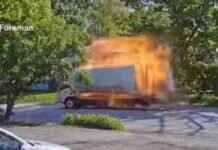JD Vance, the Vice President, had a busy week in Rome, meeting with various world leaders including Pope Leo XIV. In an interview with NBC News, Vance highlighted the importance of his meeting with the newly installed Pope, describing Leo as a potential partner in President Trump’s efforts to broker peace in conflict areas such as Russia and Ukraine. Vance expressed optimism about the Vatican’s desire to collaborate on peace deals, particularly in the Russia-Ukraine situation.
During his meeting with Leo, Vance discussed international issues such as the conflict in Israel and Gaza, as well as the Russia-Ukraine crisis. The Vice President, who is Catholic, found the Pope to be “extremely sweet” and was encouraged by their substantive conversation. Despite Leo’s previous criticism of Trump administration policies, Vance believed that the Pope could play a significant role in promoting peace on the world stage. After the meeting, Trump even mentioned Leo’s potential assistance in the Russia-Ukraine talks on social media.
Vance’s diplomatic efforts in Rome showcased the significant foreign policy role he plays in Trump’s administration. Despite Trump’s limited travel in his second term, Vance has been actively engaging with world leaders, including Ukrainian President Zelenskyy, Italian Prime Minister Meloni, and European Commission President von der Leyen. The Vice President’s broad portfolio and trust from President Trump have allowed him to take on a more proactive role in international relations, working towards ending conflicts and promoting dialogue among nations.















